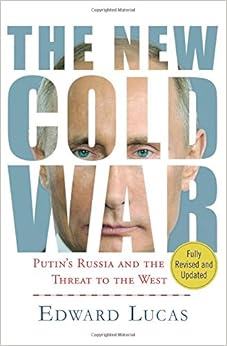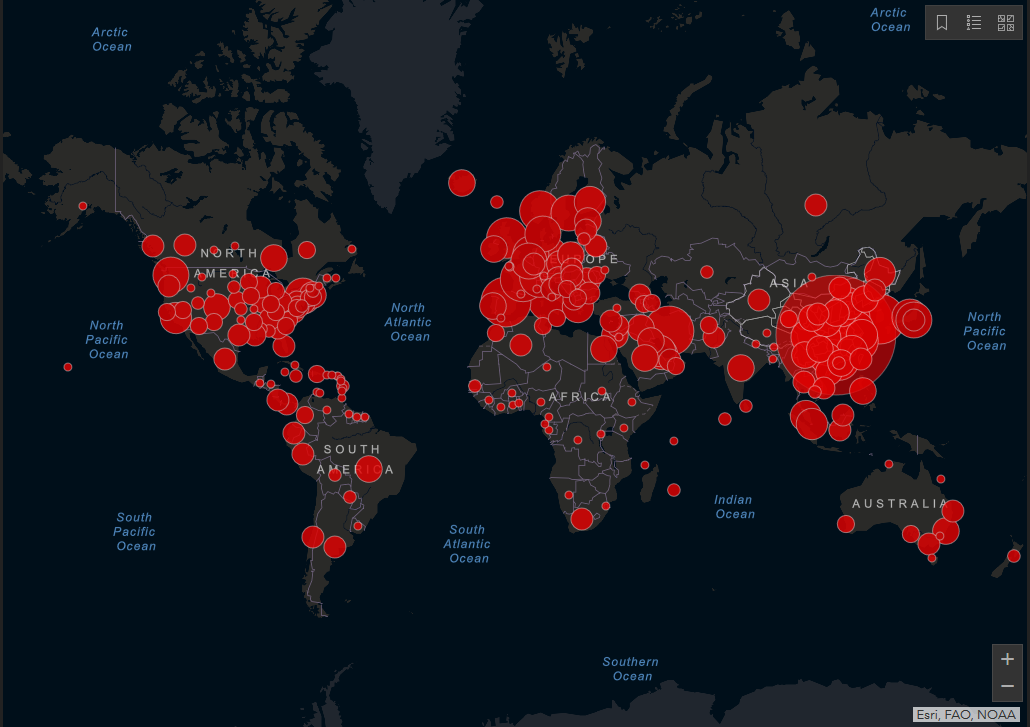 – Russian Opposition Pins Hope on Putin Defeat by Forcing Prime Minister into Run-Off Vote against Communist Party Boss
– Russian Opposition Pins Hope on Putin Defeat by Forcing Prime Minister into Run-Off Vote against Communist Party Boss
– Zyuganov and Alleged “Ex”-KGB Officer Zhirinovsky Hold Joint Media Conference to Denounce Putinist Regime
– Flashback: Zyuganov Heaped Praises on US President’s Economic Policies during Obama’s 2009 Visit to Russia, Meeting with Opposition Figures
Over the last 20 years, since the fake collapse of the Soviet Union, the communist strategists in Moscow have remained rock-steady in their drive toward global domination, the demolition of NATO, the demotion of the USA as the world’s sole superpower, and the restoration of the USSR in a “new and improved” form. Ahead of the March 4 presidential election in the Russian Federation, the Communist Party (CPRF) is very frank about its intentions of restoring official socialism to the birthplace of Bolshevism.
First, party boss Gennady Zyuganov wants to strip the Russian presidential office of immunity, ostensibly to put “ex”-communist Vladimir Putin on trial for the alleged rape of Russia by the Capitalist West. This entails abolishing Article 91 of the Russian Constitution, which states, succinctly: “The President of the Russian Federation shall possess immunity.” Yury Boldyrev, an expert from the magazine Geopolitika who is authorized to speak on Zyuganov’s behalf, huffed at a recent media conference: “The disgraceful law, which stipulates that the president is not subject to criminal liability, should be cancelled and should never be adopted again. This is the top official who must the responsible for their actions.”
In addition, Boldyrev proposed holding nationwide referenda prior to the Kremlin making any major political decisions, including Russia’s accession to the World Trade Organization. “Citizens must be given an opportunity to express their attitude towards the initiative,” he told journalists.
Second, last week Zyuganov declared that, as Russia’s chief executive, he would combine the presidential and prime ministerial posts. “The president-prime minister combination is necessitated by the severe economic crisis,” he said, referring to the global debt crisis, assuring his listeners that the political merger “would be temporary.”
Third, he would transfer the president’s “vast” powers to the State Duma.
Speaking about his staff composition in case of victory, Zyuganov promised to give whistleblower and blogger Alexei Navalny, who co-headed this winter’s anti-government rallies, a job at the Audit Chamber.
This past Tuesday, in a joint media conference in which they accused the Kremlin media of pro-Putin bias, Zyuganov and neo-fascist Vladimir Zhirinovsky demanded:
We prepared a statement…to voice our protest against elections which are illegitimate from the very beginning and show disrespect towards our citizens [who rallied in support of a fair vote]. As of today, there are no fair elections. We will demand that the guarantor of the Constitution guaranties normal elections, normal dialogue and debates [between the competitors].
The leaders of the CPRF and Liberal Democratic Party of Russia (LDPR) complained that opposition parties can barely secure 10 percent of airtime on Russian television, while Prime Minister Putin refuses to engage in televised political debates. Zyuganov and Zhirinovsky agreed that their parties and Sergei Mironov’s Just (or Fair) Russia, “must unite in an effort to provide a legitimate presidential vote on March 4.” However, says state-run Russia Today, “they do not plan to merge into a single political group.”
The bombastic Zhirinovsky, who downplays his party’s shady origin in 1989 as a political project of the Soviet KGB, did not hesitate, however, to label Mironov as “a man from Putin’s team,” while independent candidate billionaire Mikhail Prokhorov came under criticism for being a Kremlin “lackey.”
Russia’s open communists have pinned their hope on a victory in the presidential poll by forcing Putin into a run-off vote with Zyuganov. “Putin should be interested in a run-off if he wants to remain a legitimate ruler,” Sergei Mitrokhin, leader of the Yabloko party, said in a February 10 phone interview with Bloomberg. “But he’s afraid of that and it looks like they will force through a first round win. This is a big mistake on his part.”
Oppositionists warn that a first-round victory in the March 4 vote would “trigger a wave of larger rallies.” A second round three weeks later, by contrast, may hand Putin a fair win and deflate the demonstrations. Public opinion polls reveal that Zyuganov, the most popular challenger, trails Putin between 29 and 43 percentage points. “Putin is afraid of two things: observers and elections,” said Grigory Yavlinsky, Yabloko’s presidential candidate, adding that his party plans to deploy “tens of thousands” of election monitors.
The last Russian presidential election that resorted to a run-off vote took place in 1996, when “ex”-communist Boris Yeltsin, who died in 2006, barely defeated Zyuganov.
Meanwhile, Anthony Salvia, former Deputy Assistant US Secretary of State in the Reagan administration, published an opinion piece in the Jerusalem Post in which he asserts that the Obama White House is anxious to remove Putin, even if the political fallout entails the restoration of a communist regime in Russia:
There is little doubt Washington would prefer that anyone but Vladimir Putin win the election in Russia, even if that meant a Communist restoration under Gennady Zyuganov. Which sounds odd on the face of it.
Nevertheless, Washington is intent on de-legitimizing the current Russian government – even if that were to result in Communist rule. Although this appears unlikely one must deal with the relevancy of the second most powerful political group in Russia nowadays, the Communist party, which achieved almost 20 percent of the votes in the 2011 parliament elections for the Duma.
In the (unlikely) event Zyuganov were to win in March, Washington could rally support among the America public and its European allies for these and other strategic moves against Russian interests by pointing to a revived Red menace.
Not surprisingly, with some gloating communist organ Pravda picked up Salvia’s remarks to bolster its claims that Washington regularly meddles in Russia’s internal affairs. To this end, Pravda solicited the opinion of Alexander Dugin, who co-wrote the CPRF constitution in 1993 and later founded Russia’s Eurasianist movement. Dugin offers the following assessment of Russia’s political climate and the extent to which Western forces are allegedly backing Zyuganov:
There is consensus in the Western elites that Putin’s focus on the strengthening of Russia’s sovereignty is unacceptable in politics on a global scale, since it limits the construction of the West-centric global world governed from the center of Western civilization. This is why the Americans consider any alternative to Putin, and will support in one way or another, directly or indirectly, actively or inertly all that is opposed to Putin, both within and outside of Russia.
The global system signed a death warrant for Putin. The American analysts have reached a serious discussion about support for Zyuganov, whose ideology is more anti-Western than Putin’s, which means that the Americans are not looking at the words but the deeds. Putin has slowed down the collapse of Russia and returned patriotic agenda. He is holding back the pro-American agents of influence and does not make concessions, does not give up. Therefore, his dismantling is a major challenge for the United States and the entire Western world. All means are good for this, even Zyuganov.
Zyuganov, of course, is a failed and obedient politician, and therefore is not a real alternative to Putin. But the West and its systemic orientation are ready to focus on dismantling of Putin under any scenario.
We can only speculate on the seriousness and volume of support to the leader of the Communist Party from overseas.
In 2009, on the sidelines of his official visit to Russia, US President Barack Hussein Obama met with various opposition leaders, including Zyuganov. Russia’s Communist Party boss eagerly related his favourable impression of Obama and his economic policies:
My general impression from the meeting is very good. It is certainly positive. The U.S. president listened attentively to everything the participants in the meeting, including me, had to tell him. In fact, he offered answers to all of my questions in his closing speech.
I said that I had thoroughly studied the U.S. president’s anti-crisis program, that I liked it, as well as that it is socially oriented and primarily aimed at supporting poor people and enhancing the state’s role. I said all this to President Obama.
But as far as foreign policy is concerned, they almost see eye to eye. The Communist Party of the Russian Federation is categorically opposed to NATO enlargement and the deployment of an American missile defense shield in countries of Eastern Europe. The White House should take all this into consideration.
In light of this arranged encounter between Obama and Zyuganov, Salvia’s contentions have some credibility.






